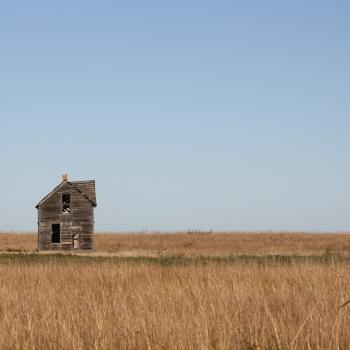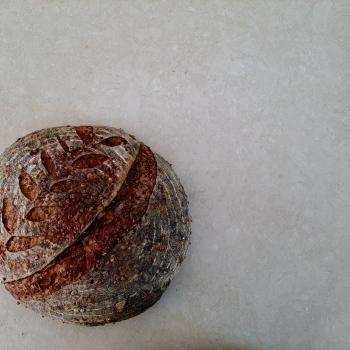
I was awake to welcome 2019. It wasn’t really an intentional decision on my part. Our family is usually happy to pick some far off location where the new year is already arriving and celebrate with them. Happy New Year, Cape Verde! It’s 7:00 PM in Kansas. But my sons were determined to stay up, and somebody in the neighborhood lit a few firecrackers at midnight, so I found myself awake (though in bed) for the opening minutes of 2019. Yay.
I’ve realized something: I’m tired too often, which means that too often I’m not getting enough sleep. I’m determined to change that in 2019. This year, I’m on a quest to reclaim the holy art of sleeping.
If you’re anything like me, there’s a good chance that at some point in your life you’ve claimed lack of sleep as a badge of pride. It’s like having a full calendar. Lack of sleep signals our busyness and importance. Heck, how could a guy like me have time for sleep? The pattern I established in graduate school held true long after classes were out. I lived on a jittery track, superhuman wakefulness made possible by regular jabs to my neurons (and nephrons) with stiff, black coffee.
After all, staying awake is good, right? It’s a biblical value: “Let us not fall asleep as others do, but let us keep awake and be sober” (1 Thessalonians 5:6). And isn’t sloth one of the deadly sins? I’ll sleep when I’m dead, or at least on Saturday morning. One would think that staying awake to read and write and work and do, do, do, were an expression of a kind of holy calling, the Protestant work ethic or some such.
But no. God designed us to sleep. Our minds and bodies need sleep to thrive. Sleep researcher Matthew Walker writes “There does not seem to be one major organ within the body, or process within the brain, that isn’t optimally enhanced by sleep (and detrimentally impaired when we don’t get enough)” (Why We Sleep: Unlocking the Power of Sleep and Dreams, p.7).
So yes, we should all get more sleep so that we’ll have healthier brains and bodies. Our bodies are, after all, temples of the Holy Spirit (1 Corinthians 6:19). We should also eat more leafy greens, exercise vigorously, and banish donuts from the countertop.
But this isn’t just about keeping healthy. Getting enough sleep is also about growing in holiness.
You see, you can’t pray when you’re tired. You just fall asleep, which may be God’s way of giving us exactly what we need. You can’t pay attention when you’re tired. You can’t read Scripture when you’re tired.
Even more importantly, rejecting sleep means rejecting the limits of our lives. In truth, our lives are but a breath (Job 7:7). We grow and fade like grass, up in the dew-full morning and withered beneath the scorching afternoon sun (Psalm 90:5; 1 Peter 1:24). To deny our need for sleep is to grasp a pride rooted in a sense of our own indispensable importance. And pride is the deadliest of sins.
When we sleep, we are releasing life and history to the God who never sleeps, who is always at work in ways beyond our knowing (Psalm 121:3-4; John 5:17). Sleep, therefore, is an act of humility on our part. To go to sleep is to recognize that our efforts are never enough on their own. It’s to reassert that what matters most will be accomplished only in partnership with God. “It is in vain that you rise up early and go late to rest, eating the bread of anxious toil; for he gives sleep to his beloved” (Psalm 127:2). God builds the house. In the Scriptures, great acts of creation took place while someone was sleeping: God made Eve from Adam’s rib (Genesis 2:21-22) and God made the covenant with Abram (Genesis 15:12).
So too, sleep is practice for death. To learn to surrender our lives to God in sleep prepares us for that moment when we must release all that we have and are, must lay our earthly burdens down. It’s no wonder that so many saints across the ages have recommended the “prayer of examen”–a prayer of life review–at the end of the day. The prayer of examen teaches us to name and give thanks for God’s presence, and to properly lament and confess the places of brokenness. Praying the examen at the end of the day is good practice for the end of life, which is why learning well to die the “little death” of sleep can serve as preparation for the real thing.
I’m not one for New Year’s resolutions, but maybe this would be a resolution to make: Reclaim the holy art of sleeping.












